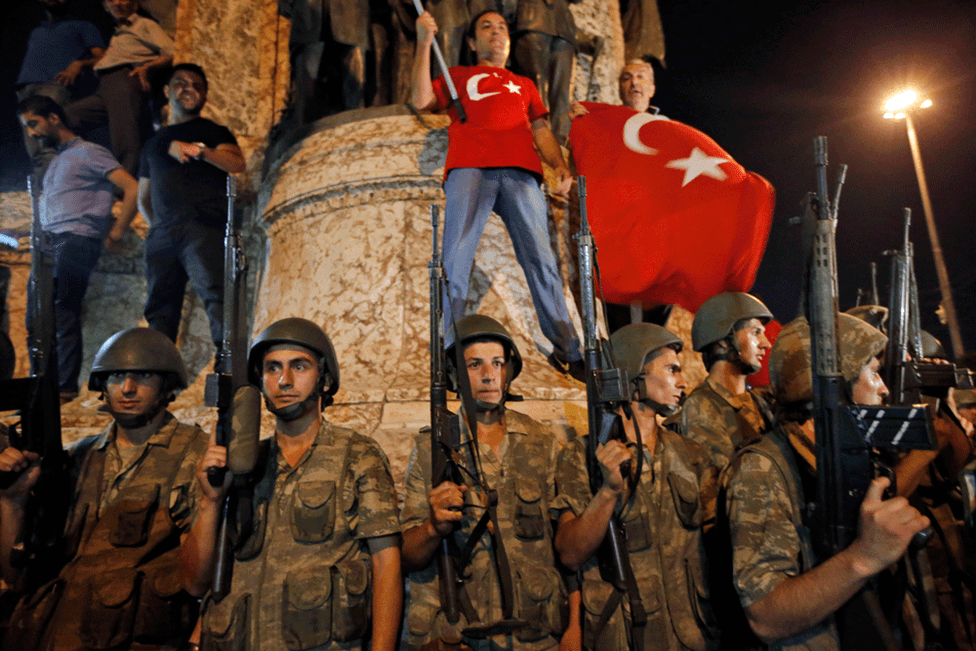Ankara–Turkish President Recep Tayyip Erdogan will chair a Cabinet session on Monday to discuss the extension of the country’s state of emergency.
On Thursday, Turkey’s National Security Council (NSC) recommended extending the emergency by another three months, while Erdogan noted that the period could be prolonged for 12 months if required.
Erdogan added that the emergency laws were required to combat threats against the government, following a failed coup attempt in July.
For his part, Turkish Prime Minister Binali Yildirim ruled out the possibility of a second coup attempt.
Speaking to reporters on Sunday, Yildirim said that the government was taking all necessary measures to prevent any such attempt.
His remarks came following media reports that the Turkish government was preparing to face a second coup attempt.
Meanwhile, Turkish police on Sunday detained a brother of Fethullah Gulen, who is accused of plotting the failed coup in July, which was aimed at ousting Erdogan.
Kutbettin Gulen was detained by police acting on a tip-off at the home of a relative in the Gaziemir district of the western Izmir province, the state-run Anadolu news agency said.
The agency reported that Kutbettin was the first of Gulen’s siblings to be detained after the coup bid.
He is accused of “membership of an armed terror group”, Anadolu said, without giving further details.
In this context, the Turkish prime minister vowed the crackdown would continue until Gulen’s influence was eradicated from his country.
Yildirim said: “Now it’s time to clear them out of all the structures. We will uproot these traitors from anywhere, from within the state, business, politics.”
“No-one should play the victim here,” he said, stressing that his government was not acting with a feeling of revenge but with justice.
Turkey’s coup attempt was launched in Istanbul and Ankara on July 15 by a mutinous faction of the military; it claimed the lives of 240 people, including many protesting civilians, before it was quashed.
Erdogan and his allies pin the blame on cleric Fethullah Gulen, whose supporters allegedly have infiltrated major state institutions, including the military, judiciary, police and other elements of the civil bureaucracy.
Turkey has asked the U.S. authorities to extradite Gulen to face justice back home and expressed impatience with the slowness of the procedure.
But Washington has insisted the full judicial process should be observed.
